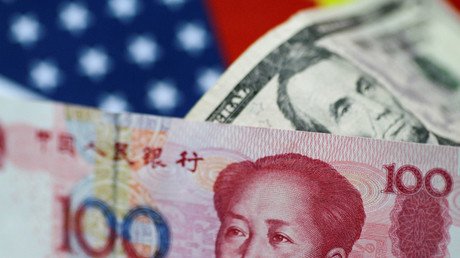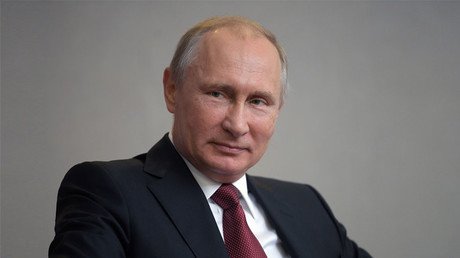'We always admired your tech!’ Elon Musk & Roscosmos chief trade praise over CrewDragon success
SpaceX CEO Elon Musk, whose CrewDragon capsule splashed down near Florida, and Roscosmos head Dmitry Rogozin, lauded each other in a series of bromance-like tweets.
CrewDragon, a SpaceX-built commercial astronaut capsule, carried out a test flight which ended with a safe splashdown in the Atlantic Ocean. The mission apparently impressed Dmitry Rogozin, who took to Twitter to reach out to Elon Musk and NASA chief Jim Bridenstine.
“Dear colleagues… On behalf of Roscosmos I congratulate you on the first successful test flight of a new spacecraft,” he wrote.
Генеральный директор Роскосмоса Дмитрий Рогозин (@Rogozin):«Дорогие коллеги, @JimBridenstine и @elonmusk! От имени Роскосмоса поздравляю вас с успешным завершением первого тестового полёта нового космического корабля...
— РОСКОСМОС (@roscosmos) March 8, 2019
To Rogozin, building alternative space engines that will ferry cargo and astronauts to the International Space Station (ISS) ensures that it’s safe and stable in orbit. The Roscosmos messages sounded a bit formal, but it didn’t stop the SpaceX CEO from returning the favor. “Thank you on behalf of SpaceX! We have always admired your rocket/spacecraft technology,” Musk replied.
Thank you on behalf of SpaceX! We have always admired your rocket/spacecraft technology.
— Elon Musk (@elonmusk) March 8, 2019
The entrepreneur, who frequently reflects on building colonies on Mars, went on to hail Russia’s NK-33 and RD 170/180 rocket engines, calling them “exceptional.” The SpaceX-built Dragon vehicle detached from the ISS on Friday after being docked there for the past week. It safely re-entered the Earth’s atmosphere and landed in the Atlantic 450km from Cape Canaveral, Florida.
Successful splashdown of the #CrewDragon right on time at 8:45 a.m. ET. pic.twitter.com/0qHhHzD4Js
— NASA Commercial Crew (@Commercial_Crew) March 8, 2019
The mission, which had no humans on board, was a success not only for Musk, but NASA as well. Since the end of the Space Shuttle program in 2011, American astronauts have been sent into orbit on the Soyuz spacecraft, taking off from Baikonur in Kazakhstan.
Also on rt.com ‘Hard to argue with Elon’: Roscosmos head taunts Musk’s praise of Russian rocketsLike this story? Share it with a friend!














